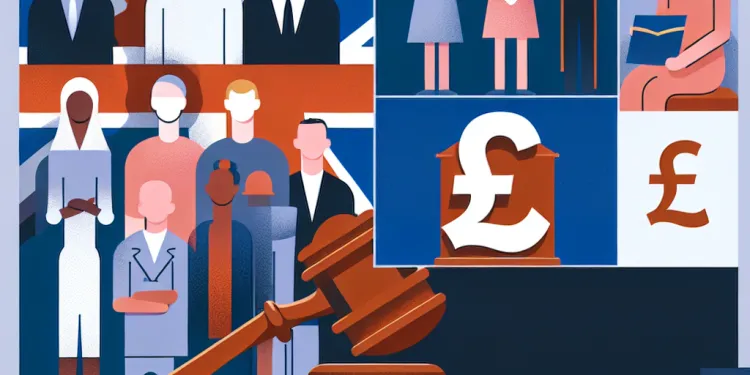
Find A Professional
More Items From Ergsy search
-
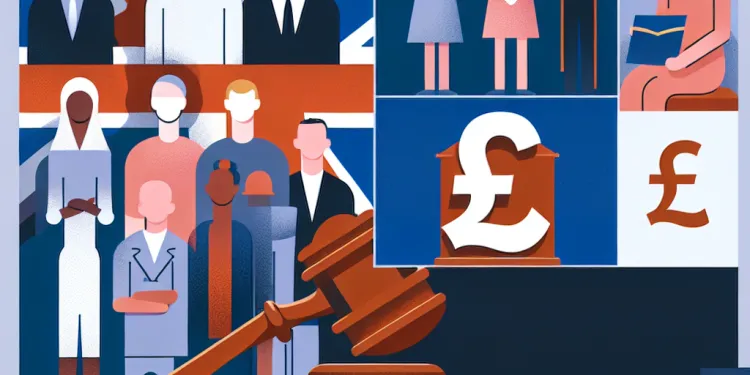
How is jury service selected?
Relevance: 100%
-

Can I volunteer for jury service?
Relevance: 90%
-

Do I have to do Jury Service?
Relevance: 89%
-
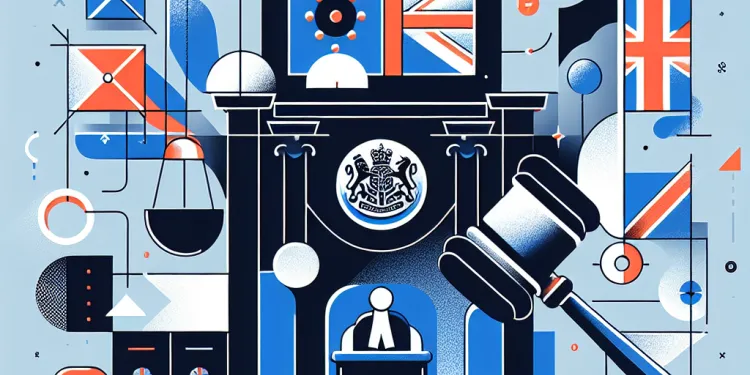
What happens during jury selection?
Relevance: 81%
-
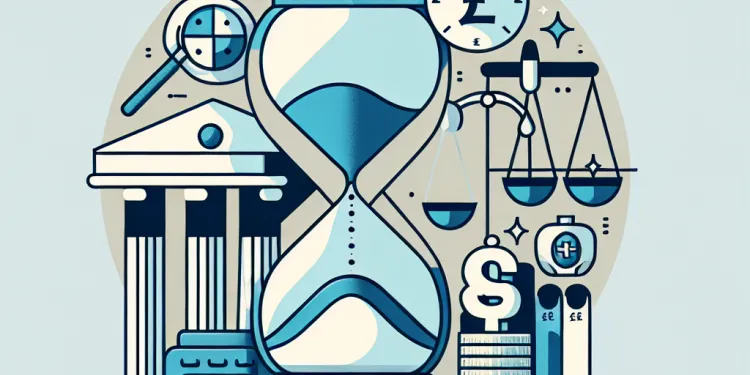
How long does jury service last?
Relevance: 79%
-
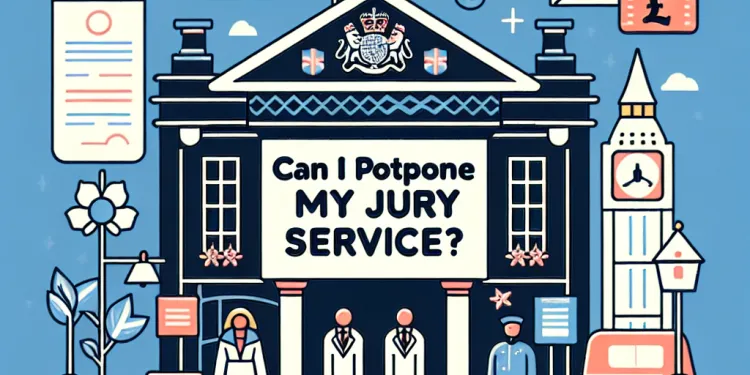
Can I postpone my jury service?
Relevance: 73%
-

What happens if I ignore a jury summons?
Relevance: 71%
-

Can my employer stop me from attending jury duty?
Relevance: 68%
-
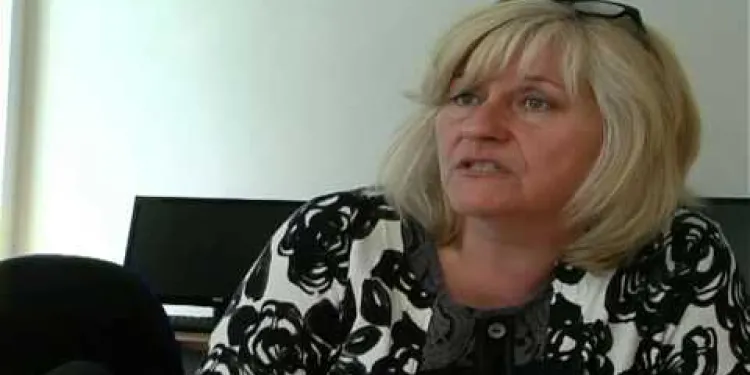
NHS Ayrshire and CVO East Ayrshire - ‘Feet First – Podiatry Services in East Ayrshire’
Relevance: 68%
-

Navigating Personal Injury Claims: What You Need to Know Post-2023
Relevance: 65%
-
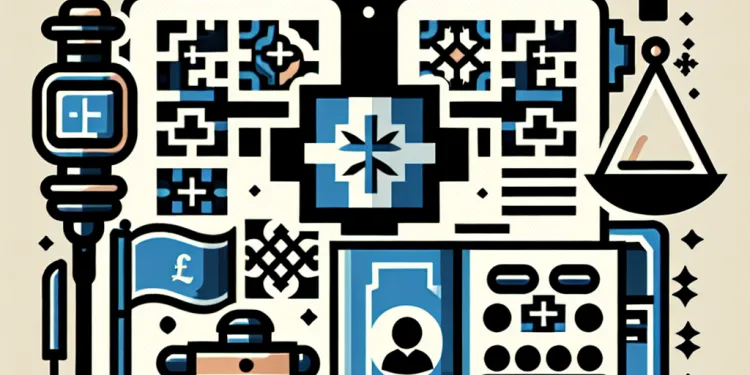
Can my religion exempt me from jury service?
Relevance: 59%
-

Do I get paid for jury service?
Relevance: 59%
-

Can IVF be used for gender selection?
Relevance: 59%
-

Do Monzo and Revolut offer 24/7 customer service?
Relevance: 56%
-
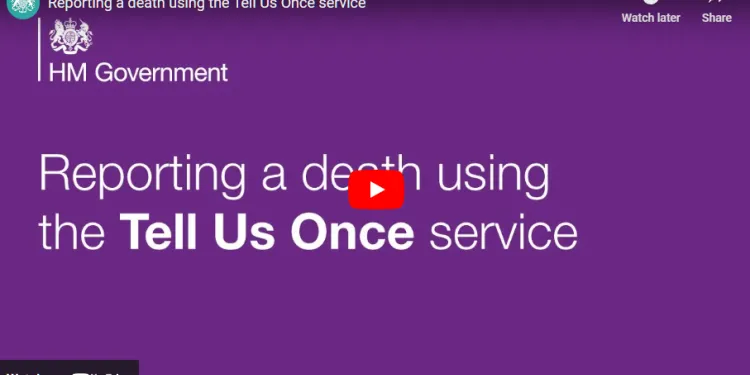
Reporting a death using the "Tell Us Once" service
Relevance: 55%
-
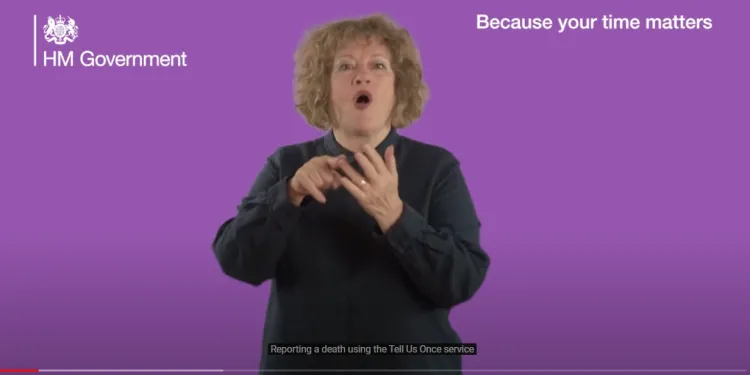
Reporting a death using the Tell Us Once service - Sign Language Version
Relevance: 52%
-
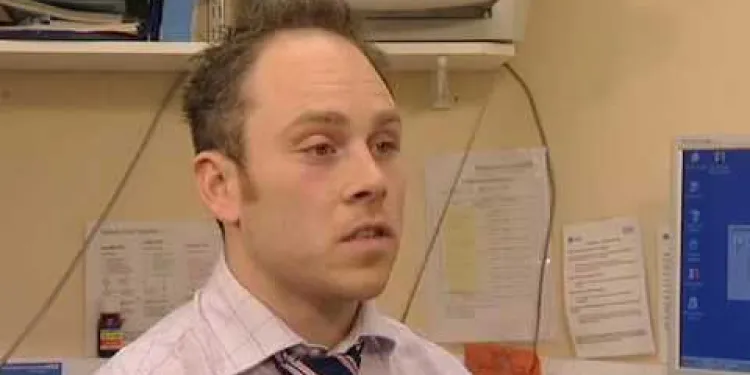
Advice on sports injuries
Relevance: 50%
-

Can chiropractors help with sports injuries?
Relevance: 50%
-

How are health services provided in prison?
Relevance: 47%
-
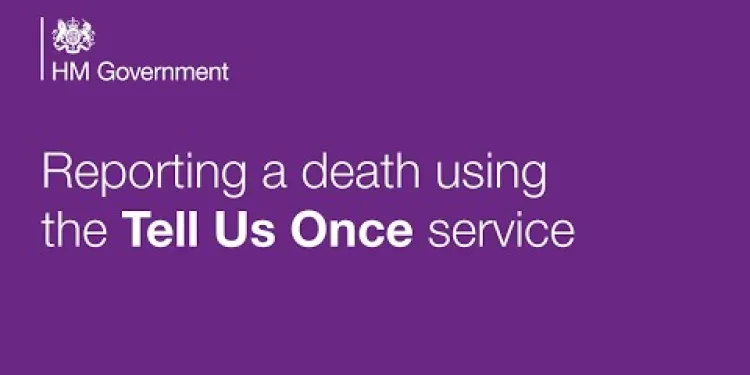
Reporting a death using the Tell Us Once service
Relevance: 47%
-

NHS-led Provider Collaboratives: improving mental health, learning disability and autism services
Relevance: 46%
-

Understanding the NHS: How to Access Services
Relevance: 45%
-
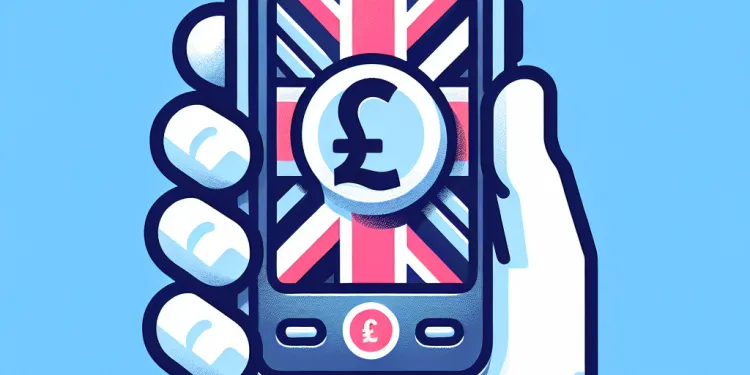
Can I use my phone during jury duty?
Relevance: 43%
-
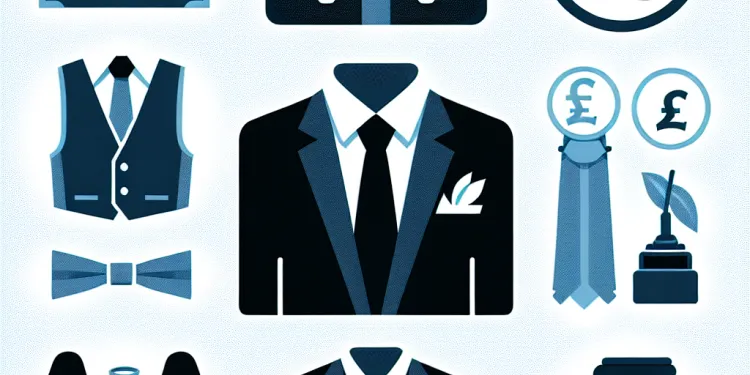
What should I wear to jury service?
Relevance: 42%
-

NHS to Expand Digital Health Services to Reduce Appointment Backlogs
Relevance: 42%
-

Navigating Mental Health Services for Children and Adolescents
Relevance: 41%
-
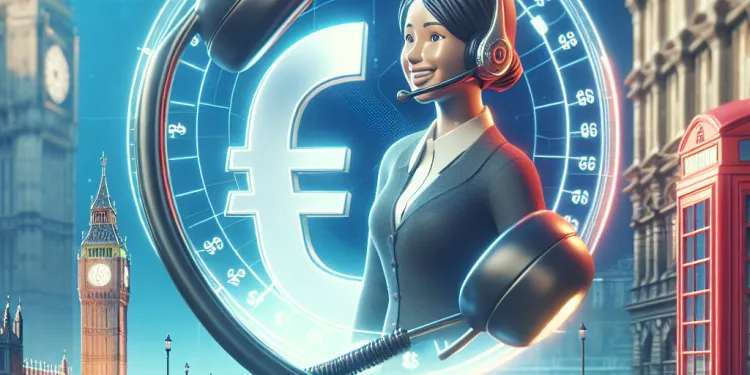
What role do customer service representatives play in fee transparency?
Relevance: 39%
-

Personal Health: Navigating the NHS for Efficient Care
Relevance: 38%
-

What information do I need to provide to check for breaches?
Relevance: 38%
-

Mental Health Support Services in the UK
Relevance: 38%
-
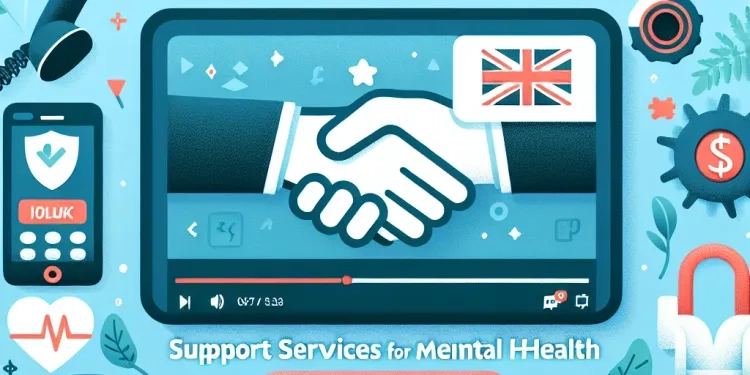
Support Services for Mental Health Amid Economic Uncertainty
Relevance: 37%
-

Ask a physio: 3 common sports injuries and what happens next
Relevance: 37%
-

Mental Health Support Resources in the UK
Relevance: 37%
-

Accessing Mental Health Support Resources in the UK
Relevance: 37%
-

Mental Health Services Struggle to Cope Amid Record Demand
Relevance: 37%
-

Current Challenges in Youth Mental Health Services
Relevance: 36%
-

Do I need a TV license if I only watch streaming services like Netflix?
Relevance: 35%
-
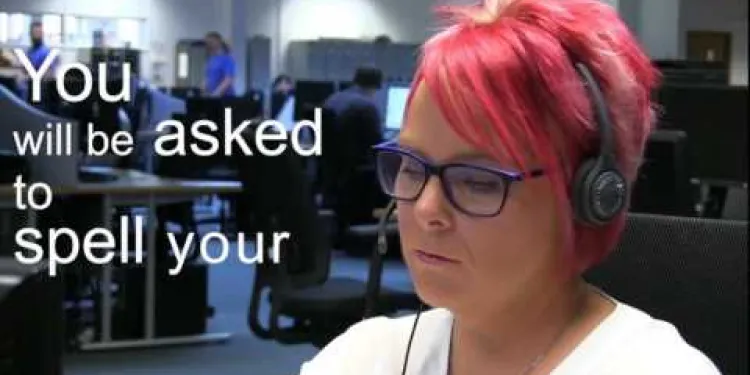
NHS 111 An Inclusive Service
Relevance: 34%
-
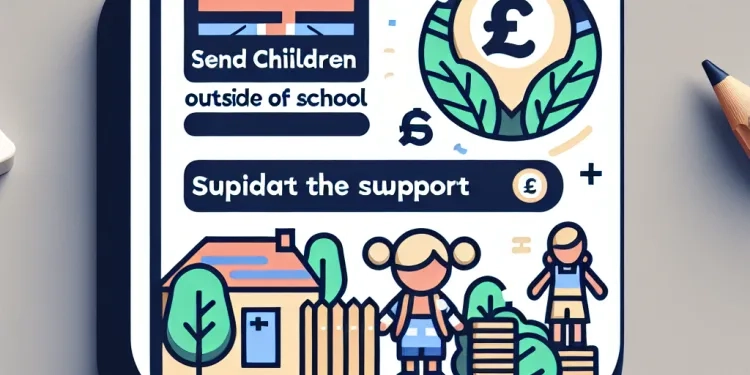
What support is available outside of school for SEND children?
Relevance: 33%
-
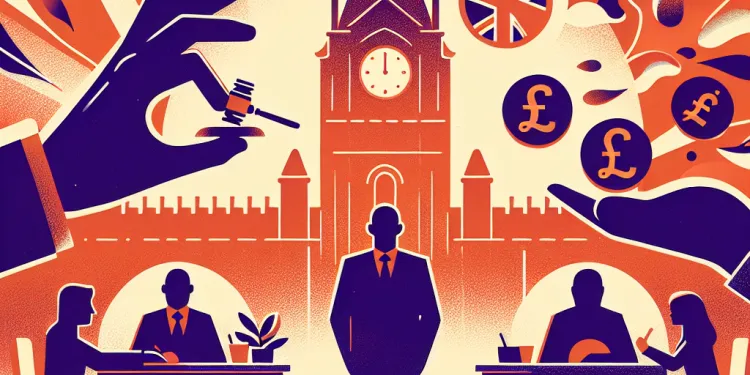
What is the role of a juror?
Relevance: 33%
Introduction to Jury Service Selection
Jury service is a fundamental aspect of the legal system in the United Kingdom, embodying the principle of being judged by one's peers. The process of selecting individuals for jury duty ensures that the judicial process remains fair and impartial. This article outlines how jury members are selected, focusing on the procedures followed within the UK.
Eligibility for Jury Service
In the UK, certain criteria must be met for an individual to be eligible for jury service. Jurors must be aged between 18 and 75 years old and must be registered on the electoral roll. Additionally, they must have lived in the UK, the Channel Islands, or the Isle of Man for at least five years since the age of 13. Certain individuals are disqualified from serving, such as those who have been sentenced to life imprisonment or are under specific types of criminal sentencing.
Random Selection Process
The selection process for jury service begins with a random drawing from the electoral register. This randomness ensures a diverse and representative cross-section of the community. Potential jurors receive a jury summons, which is a legal document requiring them to attend court on a specified date. Failure to respond to a jury summons without a valid excuse can result in a fine.
Attendance and Vetting
Upon arrival at court, jurors are part of a larger pool from which the final jury is chosen. The court conducts a selection, typically through a process called empanelment, where names are drawn randomly to form a jury for a particular trial. While in some jurisdictions potential jurors might be subjected to more rigorous questioning, in the UK the vetting process is more limited and often focuses on identifying conflicts of interest or prior knowledge of the case.
Disqualification and Deferral
Certain circumstances may prevent a person from serving on a jury. Disqualifying factors include mental health issues or an inability to understand English. Additionally, jurors may request a deferral or excusal from service due to personal circumstances like medical reasons, pre-booked travel, or significant care responsibilities. Such requests must be submitted in writing to the court, which has discretion to accept or deny them.
Conclusion
Jury service in the UK plays a crucial role in maintaining the integrity of the judicial process. The selection process is designed to be random and fair, representing a broad spectrum of society. While eligibility and disqualification criteria ensure the chosen jurors are fit for service, the opportunity for deferral allows flexibility to accommodate personal circumstances. Ultimately, the system strives to balance civic duty with fairness and justice.
Introduction to Jury Service Selection
Jury service is a big part of the legal system in the UK. It means being judged by people like you. The way people are chosen for jury duty helps make sure that things in court are fair. This text explains how people are picked to be on a jury in the UK.
Eligibility for Jury Service
To be on a jury in the UK, you need to meet some rules. You must be between 18 and 75 years old. You also need to be on the list of voters. You must have lived in the UK, the Channel Islands, or the Isle of Man for at least five years since you were 13. Some people cannot be on a jury. This includes people who have been given life imprisonment or have some types of criminal sentences.
Random Selection Process
Picking people for jury duty starts with a random draw from the voter list. Being random means that all sorts of people might be chosen. If you are picked, you get a letter called a jury summons. This letter tells you to come to court on a specific day. If you don't go and don't have a good reason, you might have to pay a fine.
Attendance and Vetting
When you get to court, you join a group of people who might be on a jury. The court picks the final jury from this group. They use a random draw process to make a jury for a trial. In the UK, they don't ask many questions, but they do check if you know about the case or have a conflict of interest.
Disqualification and Deferral
Sometimes, people can't be on a jury. Reasons include having mental health issues or not understanding English. You can also ask to delay or not do jury service if you have personal reasons, like health issues, travel plans, or taking care of someone. You must write to the court to ask, and they decide if you can skip or delay jury service.
Conclusion
Jury service in the UK is important for keeping things fair in court. The way people are picked is random and fair, so all kinds of people can be jurors. There are rules to make sure jurors are suitable, and there's also some flexibility if you have a good reason not to serve. The goal is to balance the responsibility of being on a jury with fairness and justice.
Frequently Asked Questions
What is jury service selection?
Jury service selection is the process by which individuals are chosen to serve on a jury in a court trial.
How are potential jurors initially selected?
Potential jurors are typically selected at random from lists of registered voters, licensed drivers, or state ID holders.
What is a jury pool?
A jury pool is a group of people randomly selected from the community who may be called to serve on a jury.
What is jury duty summons?
A jury duty summons is an official notice sent to individuals instructing them to appear for potential jury service.
Can you volunteer for jury service?
No, you cannot volunteer for jury service; it is a civic duty for which individuals are randomly selected.
How are jurors selected for a specific trial?
Jurors for a specific trial are selected from the jury pool through a process called voir dire, where attorneys question them.
What is voir dire?
Voir dire is the process of questioning prospective jurors to determine their qualifications and suitability for serving on a jury.
Can you be excused from jury duty?
Yes, individuals can be excused from jury duty for valid reasons like medical issues, financial hardship, or undue burden.
What are common reasons for being excused from jury service?
Common reasons include medical conditions, caregiving responsibilities, or having conflicting scheduled obligations.
How long does jury selection usually take?
Jury selection can take several hours or days, depending on the complexity of the case and the number of prospective jurors.
What happens if you ignore a jury summons?
Ignoring a jury summons can lead to penalties such as fines, contempt of court, or even arrest.
Are there consequences for not showing up for jury duty?
Yes, there can be legal consequences including fines or other penalties for failing to appear for jury duty.
Can prior jury service disqualify you from future jury duty?
Prior jury service may temporarily disqualify you, but most jurisdictions have a set period after which you are eligible again.
What is a peremptory challenge?
A peremptory challenge allows attorneys to reject a certain number of prospective jurors without stating a reason.
What is a challenge for cause?
A challenge for cause is when an attorney requests to dismiss a prospective juror due to a stated reason, such as bias.
Do all jury trials have 12 jurors?
Not all juries have 12 members; the number can vary based on the jurisdiction and type of court case.
What qualifications must you meet to serve on a jury?
Qualifications typically include being a citizen, of legal age, proficient in English, and not having any disqualifying legal conditions.
Can nondiscrimination laws affect jury selection?
Yes, nondiscrimination laws ensure that jury selection is not based on race, gender, or other protected characteristics.
How does the court ensure a fair jury selection?
Courts use voir dire and both parties are allowed to dismiss biased jurors to ensure a fair and impartial jury selection.
What is the role of the jury in a trial?
The jury listens to the evidence, deliberates, and delivers a verdict on the guilt or innocence of the defendant or on liability in civil cases.
What is picking people for jury duty?
Jury duty is when people are picked to help in a court. They listen to stories and help decide what is fair.
How are you picked?
- Your name might be chosen from a list of people who can vote.
- You might get a letter telling you when to go to court.
What to use to help:
- Ask someone to explain things you do not understand.
- Use pictures or videos to learn more about court.
Jury service selection is how people are picked to be on a jury in a court trial.
How do people get picked for jury duty?
People chosen to be on a jury are usually picked by chance. They come from lists of people who can vote, people who have a driver's license, or people with a state ID.
What is a jury pool?
A jury pool is a big group of people. They might be chosen to help in a court trial. People from the jury pool might become part of a group called a jury.
The jury listens to a court case. They help decide if someone did something wrong or not.
If you need help to understand, ask a friend or use pictures and videos. These can make it clearer.
A jury pool is a group of people. These people are picked randomly. They come from the community. They might be asked to be on a jury.
What is a jury duty summons?
A jury duty summons is a letter. It asks you to go to court. You might help decide if someone broke the law.
This is an important job. Here are some tips to help you:
- Ask someone you trust to read the letter with you.
- Use a calendar to mark the court date.
- Ask questions if you do not understand.
- Use a notebook to write down what you read.
A jury duty summons is a letter that tells you to come and see if you will be part of a jury in court.
Can you help out on a jury?
No, you cannot ask to be on a jury. Being on a jury is a job that people are picked for by chance, like a lottery. It is something you have to do if you are chosen.
How do people get picked to be on a jury for a trial?
For a special court case, people called jurors are picked from a big group called the jury pool. This picking is done through a process named voir dire. Here, lawyers ask the jurors questions.
What is voir dire?
Voir dire is when lawyers and judges ask questions to people who might be on a jury. They do this to find out if the person can be fair during a trial.
If you find reading hard, you can ask someone to read with you. You can also use an app to read the words out loud.
Voir dire is a way to ask questions to people who might be jurors. This helps to see if they can be fair and do a good job on the jury.
Can you get out of jury duty?
Jury duty means you help decide if someone did something wrong in court. Sometimes, you might need to get out of jury duty. Here are ways you can do this:
- If you are very sick.
- If you have a big problem at home.
- If you have to care for someone who needs help.
- If your job won't let you miss work.
If any of these reasons are true, you can tell the court. They might let you skip jury duty. You can ask someone to help you write a letter or fill out a form.
It’s important to tell the truth. The court will decide if you can be excused.
Yes, people can say they can't do jury duty if they have a good reason. Good reasons are being sick, having money problems, or if it's too hard for them.
Why might someone not have to do jury service?
Here are reasons why someone might not have to do jury service:
- Illness: If you are sick, you might not have to do jury service.
- Age: Very old people might not have to do it.
- Caring for someone: If you look after someone who needs help, you might not have to do it.
- Job: Some jobs mean you might not have to do jury service.
- Student: If you are in school or university, you might be excused.
If you think you can't do jury service, you can ask to be excused. Talk to someone who can help you, like a family member, teacher, or friend.
There are a few common reasons why someone might have a problem:
- They might be sick or have a medical problem.
- They might need to take care of someone else.
- They might have other things they need to do at the same time.
If reading is hard, you can:
- Use pictures to help understand.
- Ask someone to read with you.
- Take breaks if it feels like too much.
How long does it take to pick a jury?
It can take a few hours or a few days to pick a jury. It depends on the court and the case.
Tip: You can use a calendar or a timer to help you keep track of time.
If you find reading hard, you can ask someone to read this to you or use a reading app to help you understand.
Picking a jury can take a few hours or even a few days. It depends on how tricky the case is and how many people could be jurors.
What happens if you ignore a jury summons?
If you get a letter asking you to be on a jury, it's important to pay attention. A jury is a group of people who help decide if someone did something wrong in court.
If you ignore the letter, you might get in trouble. You could have to pay money or even go to court to explain why you didn't respond.
If you're confused, ask someone for help. You can also use tools like a calendar to mark important dates or set reminders on your phone.
If you do not go to jury duty, you might have to pay money as a fine. You could also get into trouble with the court or even be arrested.
What happens if you don't go to jury duty?
If you miss jury duty, you might get into trouble. Here are some things that could happen:
1. Warning: You might get a letter telling you to come next time.
2. Fine: You could have to pay money as a punishment.
3. Contempt of Court: The judge might be upset, and this could lead to more problems.
Here are some things to help you understand jury duty better:
- Ask someone to read the letter with you.
- Use a calendar to remember the date.
- Call the court if you are confused or need help.
If you don't go to jury duty, you might have to pay money or face other punishments.
If you served on a jury before, can you be picked again?
If you have been on a jury before, you might wonder if you can do it again. Here's a simple way to think about it:
- Sometimes, you can serve again.
- Other times, you might need to wait a bit.
- It's always a good idea to ask or check the rules.
If you're unsure, you can:
- Call and ask the court.
- Check their website for more information.
Support tools like audio guides or videos can help you learn more easily. You can also ask someone you trust to explain things to you.
If you have been on a jury before, you might not be able to do it again right away. But in most places, you can do it again after some time has passed.
What is a peremptory challenge?
A peremptory challenge is when a lawyer can say no to a juror without giving a reason. It is used in court. Lawyers can only do this a few times.
Tools to help:
- Ask someone to explain in simple words.
- Use pictures or videos to learn more.
A peremptory challenge lets lawyers say "no" to some people who might be jurors. They do not have to give a reason.
What is a challenge for cause?
A "challenge for cause" happens in a courtroom during a trial. It is when a lawyer wants to stop a person from being on the jury.
The lawyer gives a reason for this. For example, the juror might know someone involved in the trial and might not be fair.
The judge listens to the reason and decides if the juror should stay or go.
If you find it hard to understand, you can ask someone to explain it to you.
Tools like talking dictionaries and apps that read text aloud can help with hard words.
A "challenge for cause" is when a lawyer asks to excuse a person from the jury. This is because there is a good reason, like if the person is not fair.
Do all jury trials have 12 people?
Not all trials have 12 people on the jury. Some have fewer. It depends on the type of trial. You can ask a grown-up to help you understand more about it.
Juries don't always have 12 people. The number of people can change depending on where the court is and what kind of case it is.
Who can be on a jury?
To be on a jury, you need to meet some rules:
- You must be at least 18 years old.
- You have to be a citizen of the country.
- You should live in the area where the court is.
- You need to understand what is said in court.
If you find it hard to read long texts, you can try:
- Reading out loud. It can help understand better.
- Asking someone to read with you. They can help explain any hard parts.
- Using a ruler or finger to help keep your place while reading.
To qualify, you usually need to: be a citizen, be old enough, speak English well, and have no legal problems that stop you.
Do fairness laws change how people are picked for a jury?
Laws that make sure everyone is treated fairly can also change how people are chosen to be on a jury. A jury is a group of people who listen to what happened and help decide what is right and wrong.
These fairness laws help to make sure the jury is fair. They make sure no one is left out just because of their race, gender, or other things. This helps the trial to be fair for everyone.
If you find reading hard, you can ask someone to help explain things. They can read with you or talk about what the words mean. You can also use apps that read out loud or make the words bigger and easier to see.
Yes, there are laws that say when picking people for a jury, you can't choose based on things like skin color, whether someone is a boy or girl, or other protected things.
How does the court pick a fair jury?
The court has steps to make sure the jury is fair. A jury is a group of people who listen to the case and help decide. Here is how the court picks them:
- Rotation: This means choosing people from different places and backgrounds.
- Exclusion: People who know too much about the case or know the people involved aren't picked.
- Questions: They ask questions to make sure people can be fair and listen to everything.
Families can help by talking about court cases at home. Tools like picture stories can help explain how courts work. Reading with an adult can also make things clearer!
Courts use a process called voir dire to pick a fair jury. Both sides can say no to jurors who might be unfair. This helps make sure the jury is fair and open-minded.
What does a jury do in a trial?
A jury is a group of people who listen to a court case.
The jury helps decide if someone did something wrong.
They talk together about what they heard. Then they say if they think the person is guilty or not guilty.
You can ask someone to explain more if you need help understanding.
The jury is a group of people who listen to the facts in a case. They talk about the case together. Then, they decide if the person did something wrong or not. In some cases, they decide who is responsible.
Useful Links
- Ergsy carfully checks the information in the videos we provide here.
- Videos shown by Youtube after a video has completed, have NOT been reviewed by ERGSY.
- To view, click the arrow in centre of video.
- Most of the videos you find here will have subtitles and/or closed captions available.
- You may need to turn these on, and choose your preferred language.
- Go to the video you'd like to watch.
- If closed captions (CC) are available, settings will be visible on the bottom right of the video player.
- To turn on Captions, click settings .
- To turn off Captions, click settings again.
More Items From Ergsy search
-

How is jury service selected?
Relevance: 100%
-

Can I volunteer for jury service?
Relevance: 90%
-

Do I have to do Jury Service?
Relevance: 89%
-

What happens during jury selection?
Relevance: 81%
-

How long does jury service last?
Relevance: 79%
-

Can I postpone my jury service?
Relevance: 73%
-

What happens if I ignore a jury summons?
Relevance: 71%
-

Can my employer stop me from attending jury duty?
Relevance: 68%
-

NHS Ayrshire and CVO East Ayrshire - ‘Feet First – Podiatry Services in East Ayrshire’
Relevance: 68%
-

Navigating Personal Injury Claims: What You Need to Know Post-2023
Relevance: 65%
-

Can my religion exempt me from jury service?
Relevance: 59%
-

Do I get paid for jury service?
Relevance: 59%
-

Can IVF be used for gender selection?
Relevance: 59%
-

Do Monzo and Revolut offer 24/7 customer service?
Relevance: 56%
-

Reporting a death using the "Tell Us Once" service
Relevance: 55%
-

Reporting a death using the Tell Us Once service - Sign Language Version
Relevance: 52%
-

Advice on sports injuries
Relevance: 50%
-

Can chiropractors help with sports injuries?
Relevance: 50%
-

How are health services provided in prison?
Relevance: 47%
-

Reporting a death using the Tell Us Once service
Relevance: 47%
-

NHS-led Provider Collaboratives: improving mental health, learning disability and autism services
Relevance: 46%
-

Understanding the NHS: How to Access Services
Relevance: 45%
-

Can I use my phone during jury duty?
Relevance: 43%
-

What should I wear to jury service?
Relevance: 42%
-

NHS to Expand Digital Health Services to Reduce Appointment Backlogs
Relevance: 42%
-

Navigating Mental Health Services for Children and Adolescents
Relevance: 41%
-

What role do customer service representatives play in fee transparency?
Relevance: 39%
-

Personal Health: Navigating the NHS for Efficient Care
Relevance: 38%
-

What information do I need to provide to check for breaches?
Relevance: 38%
-

Mental Health Support Services in the UK
Relevance: 38%
-

Support Services for Mental Health Amid Economic Uncertainty
Relevance: 37%
-

Ask a physio: 3 common sports injuries and what happens next
Relevance: 37%
-

Mental Health Support Resources in the UK
Relevance: 37%
-

Accessing Mental Health Support Resources in the UK
Relevance: 37%
-

Mental Health Services Struggle to Cope Amid Record Demand
Relevance: 37%
-

Current Challenges in Youth Mental Health Services
Relevance: 36%
-

Do I need a TV license if I only watch streaming services like Netflix?
Relevance: 35%
-

NHS 111 An Inclusive Service
Relevance: 34%
-

What support is available outside of school for SEND children?
Relevance: 33%
-

What is the role of a juror?
Relevance: 33%